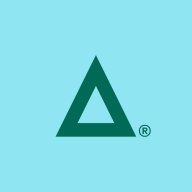

SonarQube Server and Fortra's Digital Defense Frontline WAS compete in code quality and web application security. SonarQube provides robust code analysis, while Fortra leads with comprehensive security assessments, benefiting organizations that prioritize security.
Features: SonarQube Server offers in-depth static code analysis, integration with CI/CD pipelines, and extensive plugin support. Fortra's Digital Defense Frontline WAS delivers detailed vulnerability assessments, actionable insights, and enhanced security management, showcasing its security focus.
Ease of Deployment and Customer Service: SonarQube Server is known for straightforward deployment, comprehensive documentation, and integrated plugins. Fortra's Digital Defense Frontline WAS utilizes a cloud-based model, aiding scalability and maintenance, with robust technical support, favoring businesses integrating into security frameworks.
Pricing and ROI: SonarQube Server offers a flexible, tiered pricing model suitable for various organization sizes. Fortra's Digital Defense Frontline WAS may have higher initial costs; however, its extensive security features offer significant long-term ROI for security-driven enterprises.
| Product | Market Share (%) |
|---|---|
| SonarQube Server (formerly SonarQube) | 20.5% |
| Fortra's Digital Defense Frontline WAS | 0.3% |
| Other | 79.2% |

| Company Size | Count |
|---|---|
| Small Business | 32 |
| Midsize Enterprise | 21 |
| Large Enterprise | 75 |
Fortra's Digital Defense Frontline Web Application Scanner (WAS) is an easy-to-use security solution that provides prioritized vulnerability reporting and technical recommendations so your remediation team can tackle the biggest threats, first. Frontline WAS easily runs dynamic web application tests with accurate results, not matter how much your web apps change.
SonarQube Server enhances code quality and security via static code analysis. It detects vulnerabilities, improves standards, and reduces technical debt, integrating into CI/CD pipelines.
SonarQube Server is a comprehensive tool for enhancing code quality and security. It offers static code analysis to identify vulnerabilities, improve coding standards, and reduce technical debt. By integrating into CI/CD pipelines, it provides automated checks for adherence to best practices. Organizations use it for code inspection, security testing, and compliance, ensuring development environments with better maintainability and fewer issues.
What are the key features of SonarQube Server?Many industries implement SonarQube Server to uphold coding standards, maintain security protocols, and streamline their software development lifecycle. In sectors like finance and healthcare, adhering to regulations and ensuring reliable software is critical, making SonarQube Server invaluable. It is often integrated into CI/CD pipelines, ensuring that code changes meet set standards before deployment. This approach enhances productivity and maintains compliance with industry-specific requirements.
We monitor all Application Security Tools reviews to prevent fraudulent reviews and keep review quality high. We do not post reviews by company employees or direct competitors. We validate each review for authenticity via cross-reference with LinkedIn, and personal follow-up with the reviewer when necessary.